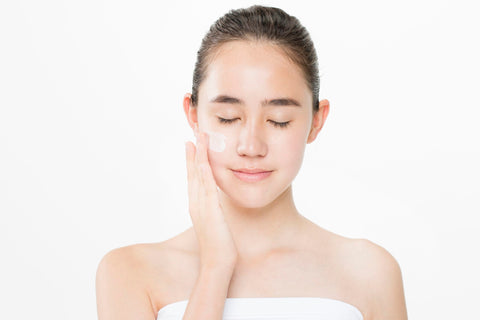Everyone gets dry, sensitive, even itchy skin occasionally. But sometimes, that nuisance skin irritation can be more serious. Psoriasis, eczema, and chemotherapy treatments for cancer can cause skin problems that need more dedicated treatment.
Psoriasis
Researchers aren’t sure what causes this autoimmune disease of the skin. With psoriasis, the body’s defensive immune system makes new skin cells to grow far too quickly, which causes thick patches of scaly, silvery, itchy, flaky skin. The disease tends to be active in chronic flares, then remissions. It isn’t contagious.
According to the National Psoriasis Foundation, about 7.5 million Americans have psoriasis, making it the most common autoimmune disease in the U.S. About 30 percent of those who have it eventually develop psoriatic arthritis, as well. There is no cure for psoriasis, but there are effective medical treatments that can help to keep it under control.
Mild psoriatic flares can be soothed with over-the-counter creams and ointments, like Steamcream or Aveeno. Avoid creams with harsh ingredients. Some corticosteroid creams may help, as well. Bathing in lukewarm water treated with gentle bath oils, etc., may be helpful. Apply a soothing moisturizer to still-damp skin, and wear gloves for washing dishes, household chores, and gardening. For moderate and severe flares, see your doctor.
Eczema
Eczema (atopic dermatitis) is a genetic, common chronic skin disorder that researchers believe may be caused by a malfunctioning immune system. It mostly affects infants and children, but can persist through adolescence into adulthood. Some people also get eczema for the first time as adults, but this is very rare.
In children, it appears most often on the face, elbows, and knees; in adults, the hands and feet, arms, and back of the knees are most often affected. Eczema isn’t contagious.
It causes dry, scaly skin and a red, painfully itchy rash with small bumps that break open and weep easily. Open sores can easily become infected by bacteria on the skin, such as Staphylococcus aureus. Eczema can cause the skin to thicken.
Mild flares of eczema can be soothed with gentle creams and ointments, such as Steamcream. If your eczema might be an allergic reaction, diphenhydramine (Benedryl), an antihistamine, may help. Over-the-counter corticosteroid creams may be helpful, too. If your hands are affected, be sure to wear gloves for washing dishes, household chores, and gardening.
For more serious cases, contact your doctor for advice or a prescription.
Chemo skin
Cancer treatments (chemotherapy, biological therapy, and radiation therapy) may sometimes cause skin problems as a side effect of the treatment itself. Your skin may become:
Red, itchy, sore, darker, usually in patches, dry, more sensitive to sunlight.
It’s important to talk to your doctor if you have skin problems because of your cancer therapy. They’ll be able to prescribe treatment directly related to the specific drug that caused it. But there are some other, common sense ways soothe irritated skin in the meantime:
- Soak in a lukewarm (never hot!) bath treated with bath oils, colloidal oatmeal, Dead Sea salts or Epsom salts. Keep the bath short (no more than 10 minutes). Pat, don’t rub, leaving skin still a bit damp, and moisturize with a gentle skin cream like Steamcream or Aveeno.
- Avoid direct sunlight, cover exposed skin with long pants, long sleeves, and hats, and use a sunscreen lotion of at least SPF15.
- Use a skin moisturizing cream or lotion several times during the day. Make sure it has no harsh ingredients.
- Avoid harsh soaps; choose types with fats or added oils, and with no perfume.
- Wear protective gloves while washing dishes or gardening.
Leslie Vandever is a professional journalist and freelance writer with more than 25 years of experience. She lives in the foothills of Northern California.
References:
Atopic Dermatitis (Eczema). (2011, Aug. 23) Mayo Clinic. Retrieved on April 10, 2014 from http://www.mayoclinic.org/diseases-conditions/eczema/basics/definition/con-20032073
Psoriasis. (2011, Feb. 25) Mayo Clinic. Retrieved on April 10, 2014 from http://www.mayoclinic.org/diseases-conditions/psoriasis/basics/definition/con-20030838
Psoriasis. (n.d.) National Psoriasis Foundation. Retrieved on April 11, 2014 from https://www.psoriasis.org/psoriasis
Caring For Your Skin During Cancer Treatment. (n.d.) Cancercare. Retrieved on April 11, 2014 from http://www.cancercare.org/publications/76-caring_for_your_skin_during_cancer_treatment
Dealing With Itching. (2014, March 5) Cancer Research UK. Retrieved on April 11, 2014 from http://www.cancerresearchuk.org/cancer-help/coping-with-cancer/coping-physically/skin/managing/dealing-with-itching#treatment



